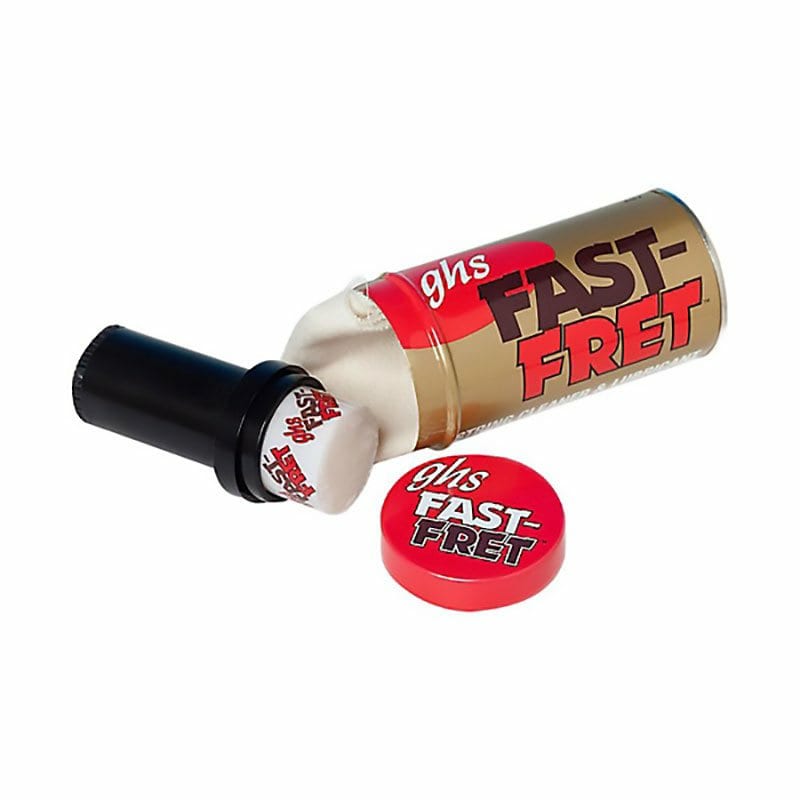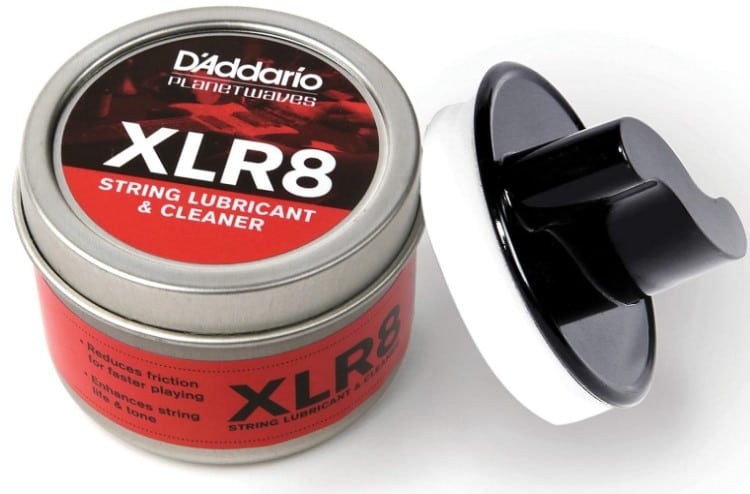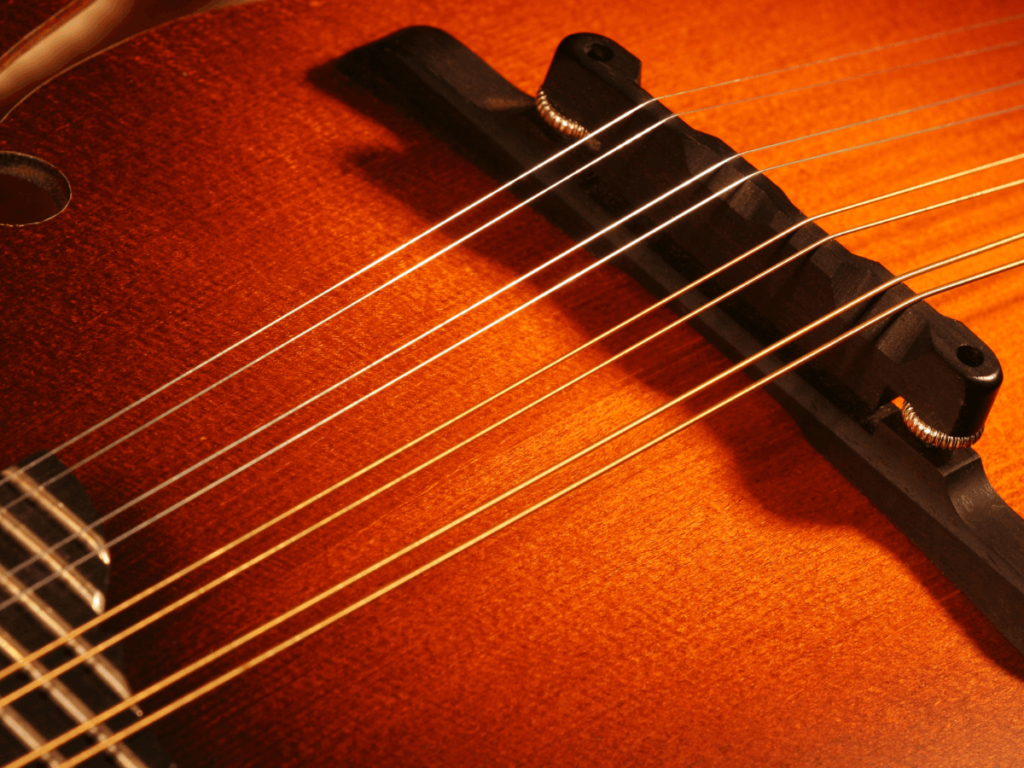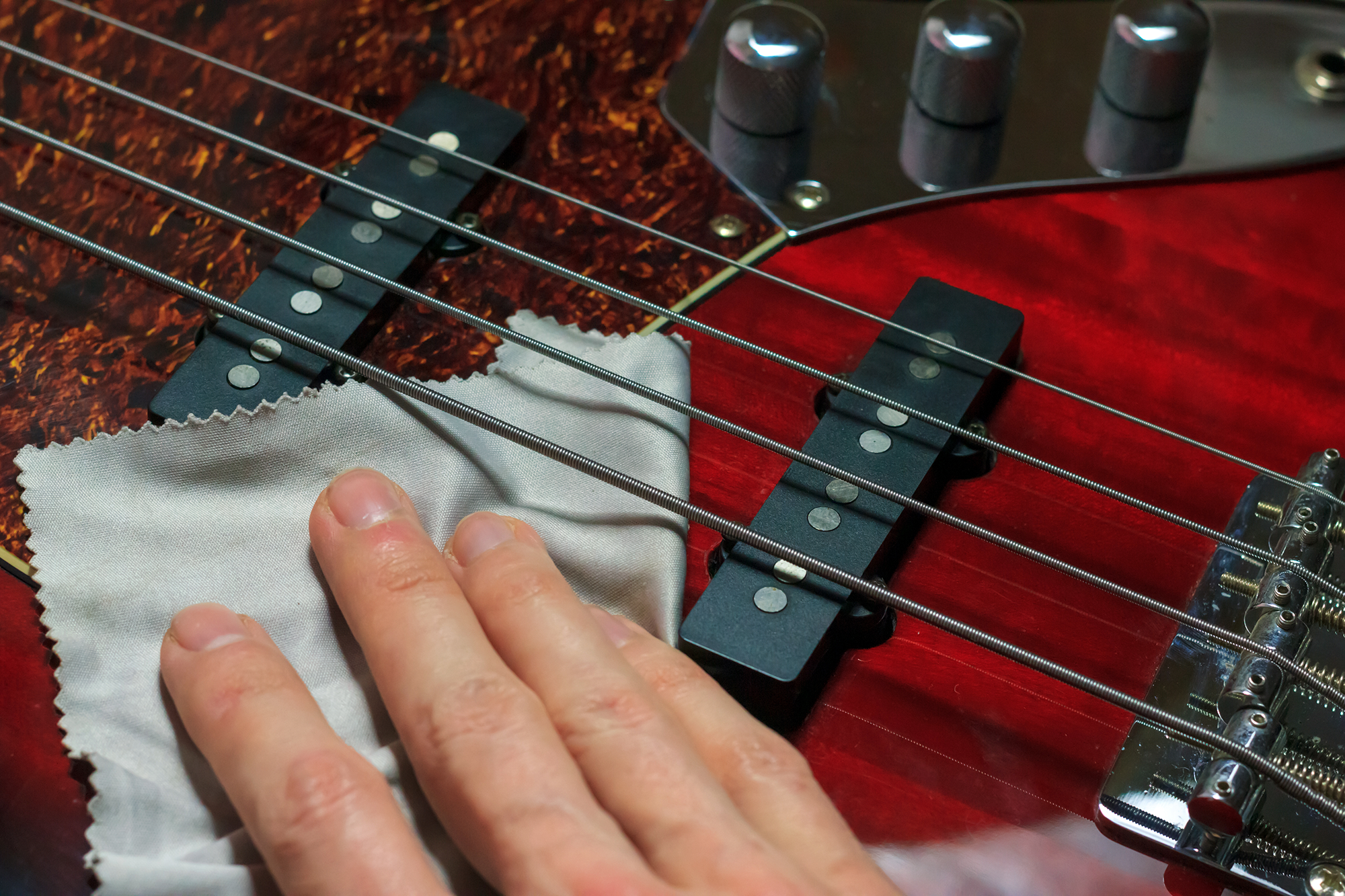Best Bass
Guitar Cleaner
-
Overall: 9/10
-
Best Feature: Quick and convenient cleaning
-
TedScore™: 9/10
Best Budget-
Friendly
String Cleaner
-
Overall: 9/10
-
Best Feature: Extends string life
-
TedScore™: 9/10
Best Bass
Guitar Strings
-
Overall: 8/10
-
Best Feature: Removes friction for faster playing
-
TedScore™: 8/10
Are you a bass player wondering how long do bass strings last?
Or maybe you’re a curious music enthusiast looking to learn more about the lifespan of bass strings.
Well, you’ve come to the right place!
In this post, we’ll dive into the world of bass strings and explore the factors that affect their longevity.
We’ll cover everything from the type of strings you use to your playing style.
So, grab your bass, and let’s get ready to rock!
Factors Affecting String Longevity
While some bass players may need to change their strings every few weeks, others may be able to go several months without needing to replace them.
The lifespan of bass strings can vary widely depending on several factors, including these:
How often you play your bass will influence how quickly your strings wear out. Frequent playing can cause the strings to lose their brightness and elasticity faster.
Aggressive playing techniques, such as hard picking or slapping, put more strain on the strings and accelerate their wear.
High humidity levels, exposure to sweat, and temperature changes can contribute to string corrosion and deterioration. Proper storage and maintenance can help prolong their lifespan.
Signs of Worn-out Bass Strings
If you notice that your bass strings no longer produce a bright and vibrant sound and instead sound dull and muted, it clearly indicates that they have worn out.
Over time, strings accumulate dirt, oil, and sweat from your fingers, dampening their vibrations and affecting their tonal quality.
Intonation refers to the accuracy of the pitch produced when playing different notes. Worn-out bass strings may cause poor intonation, where certain notes may sound out of tune or slightly off. This can make it challenging to play in tune with other instruments or in different positions on the neck.
Sustain refers to how long a note sounds after it’s played. When bass strings wear out, they may lose some of their sustain. You may notice that notes don’t ring out as long or fade away more quickly than they used to. This can affect the overall sound and expressiveness of your playing.
Frequency of String Replacement
For Professional Musicians
If you’re a professional musician who plays the bass guitar regularly and performs on stage frequently, you may need to replace your bass strings more often than casual players.
The constant use, vigorous playing, and exposure to sweat and dirt can cause the strings to wear out faster.
Professionals typically change their bass strings every 2-3 months to ensure optimal sound quality and playability.

For Regular Gigging Musicians
For regular gigging musicians who perform with their bass guitar at gigs or events weekly or monthly, string replacement may be necessary every 3-6 months.
While not as frequent as professionals, regular gigging still exposes the strings to significant wear and tear.
It’s essential to monitor the condition of your strings and change them when they lose their brightness or become difficult to play.
For Casual Players
You may not need to change strings as frequently if you’re a casual player who plays the bass guitar occasionally or for leisure.
Depending on how often you play and the quality of the strings, replacement may only be required once a year or even less.
However, it’s important to note that even if you don’t play often, strings can deteriorate over time due to humidity and oxidation.
Extending the Lifespan of Bass Strings
Proper Cleaning and Maintenance
String Lubrication
Regular String Changing Routine
Recommended Products to Prolong Your Bass Strings Life
GHS Fast Fret String Lubricant

FEATURES: Easy to use
- Extends string life
- Removes dirt and grime
- Enhances playability
- Scent may be overpowering for some users
When you click ‘Check Price’, you’ll see there are loads of great places to buy this item. Our personal favorite is Sweetwater for the US, and Thomann and Gear4Music for the UK & Europe.
They are the largest music retailers, with excellent customer service, competitive prices, really fast shipping, and the longest guarantees.
The professional musician who wrote this article combined many things,
from the product build, manufacturer’s reputation through to feedback
from other users, to create our famous TedScore™.
Planet Waves XLR8 String Lubricant/Cleaner

FEATURES: Removes friction for faster playing
- Enhances string life and tone
- Reduces finger noise
- Easy to use applicator
- Easy to apply
- Works on all stringed instruments
- Regular reapplication required
When you click ‘Check Price’, you’ll see there are loads of great places to buy this item. Our personal favorite is Sweetwater for the US, and Thomann and Gear4Music for the UK & Europe.
They are the largest music retailers, with excellent customer service, competitive prices, really fast shipping, and the longest guarantees.
The professional musician who wrote this article combined many things,
from the product build, manufacturer’s reputation through to feedback
from other users, to create our famous TedScore™.
Ernie Ball 4279 Wonder Wipes Combo, 6 Pack

FEATURES: Quick and convenient cleaning
-Formulated specifically for musical instruments
- Removes dirt, grime, and fingerprints effectively
- Includes one pack of fretboard conditioner for nourishing dry fingerboards
- Two packs of instrument polish to preserve your instrument's natural aesthetic
- Three packs of string cleaner removes dirt and maximises your string's lifespan, and tone
- Can be a bit expensive compared to other cleaning options
When you click ‘Check Price’, you’ll see there are loads of great places to buy this item. Our personal favorite is Sweetwater for the US, and Thomann and Gear4Music for the UK & Europe.
They are the largest music retailers, with excellent customer service, competitive prices, really fast shipping, and the longest guarantees.
The professional musician who wrote this article combined many things,
from the product build, manufacturer’s reputation through to feedback
from other users, to create our famous TedScore™.
Choosing the Right Bass Strings
String Material
String Winding Type
Roundwound is the most common type of winding and features a round wire wrapped around a core. It produces a bright and punchy sound with plenty of sustain.
Flatwound strings have a flat wire wrapped around a core. It produces a warmer and smoother sound with less sustain than roundwound strings.
Halfwound is a combination of roundwound and flatwound. The outer layer of the string is roundwound, while the inner layer is flatwound. This produces a sound that’s somewhere between roundwound and flatwound.
Groundwound is a type of winding is similar to roundwound, but the wire is ground down to create a smoother surface. This produces a sound similar to roundwound, but with less finger noise.

String Coating
Coated strings are designed to provide an extended lifespan and preserve their tone for longer.
Coated strings, such as those with a polymer coating, can resist dirt, sweat, and oils that can corrode and shorten string life.
While coated strings may be pricier, they can last up to four times longer than uncoated strings.

Gauge Considerations
The string gauge, or thickness, can impact their lifespan and tone.
Lighter, thinner gauge strings may produce a brighter tone but have a shorter lifespan due to increased flexibility and easier breakage.
Heavier gauge strings are more durable and can last longer, but they may offer a duller tone for some players.
How Long Do Bass Strings Last
Key Takeaways
Now that you understand bass strings and their lifespan better, you can take the necessary steps to ensure your bass strings will last as long as possible.
While there’s no definitive answer to how long bass guitar strings last, it’s important to recognize when they need to be replaced.
Say goodbye to broken strings by staying proactive with your string maintenance and keeping an eye out for signs of wear and tear.
Remember, it’s always a good idea to experiment with different types of strings to find the ones that work best for you.
And don’t be afraid to contact your local music store or fellow bass players for string maintenance and replacement advice. Happy playing!
Wait, there’s more!!!
Take a look at our new article, Best Bass Guitar For Under 1000.
FAQ's
If your bass strings sound dull, lack sustain, or have visible signs of wear and tear, such as rust or discolouration, it’s probably time to replace these old strings. If you find yourself constantly tuning your bass, it may be a sign that the strings have lost their elasticity and need to be replaced.
The lifespan of a bass string depends on several factors, such as frequency of use, playing style, and maintenance. Generally, bass strings can last anywhere from a few weeks to several months before needing to be replaced.
The frequency of restringing a bass guitar depends on the frequency of use and playing style. Generally, it’s recommended to restring a bass guitar every 3-6 months for regular players, while occasional players may only need to restring once a year.
It’s inaccurate to say that bass players don’t change guitar strings – many do. However, some bass players may not change their set of strings as frequently as others due to personal preference or financial reasons.
Yes, bass guitar strings can break due to factors such as age, wear and tear, and excessive tension. Regular maintenance and replacement can help prevent string breakage.












super helpful article thx for the tips on picking the right strings gonna check out some coated ones next
wow, never realized my strings could last longer than my interest in learning new songs. who knew?
Fascinating read on the factors affecting string longevity. It’s truly remarkable how various elements such as humidity, the acidity of one’s skin, and even the frequency of play can drastically shorten or extend the lifespan of bass strings. I’ve personally found that using coated strings alongside a disciplined cleaning routine post-play significantly prolongs my string life, corroborating your recommendations. Kudos for the insightful analysis.
right on bassNerd, coated strings are a game changer for me too. also noticed playing with softer picks makes a difference in how long my strings last. just my two cents
hey Hugh Richardson, got a q for ya. how often should casual players really change their strings? i mean, i dont play gigs or anything. just jammin at home.